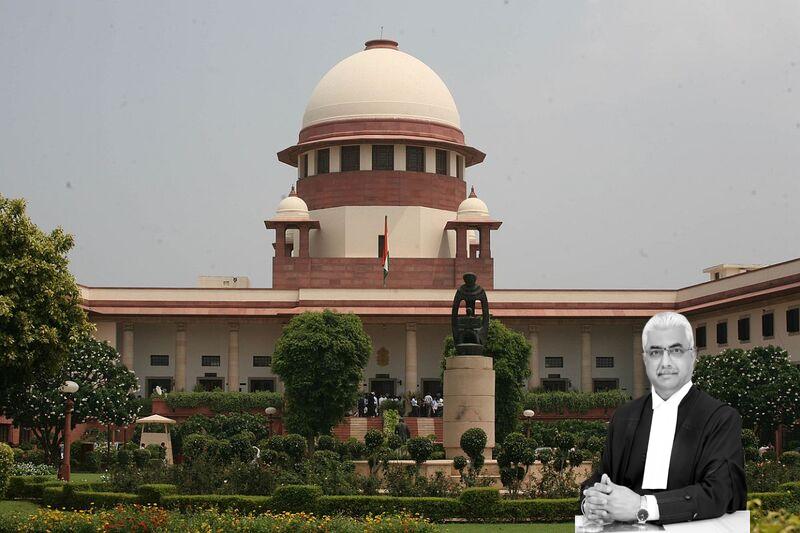The Order dated 24.10.2017 passed in WP No.1842 of 2016 and WP No.2106 of 2012 by the High Court of Madhya Pradesh whereunder 2 the demand notices raised against the appellants for payment towards advertisement tax came to be affirmed by relying upon the judgment of Bharti Airtel Vs. Appellant is a company incorporated under the Companies Act, 1956 and in order to let the general public know the name and business of the company and the nature of its business and its products, appellant company has put up a name board displaying its trade name within the business premises displaying the products and services in which the appellant is dealing and as such the notice dated 04.01.2012 came to be issued by the second respondent demanding advertisement tax of Rs.1,31,137000/-/- and yet another notice dated 04.01.2012 of Rs.51,000/- in respect of another premises where similar board had been put up by the appellant. This notice came to be challenged by filing a Writ Petition under article 226 of the Constitution of India before the High Court of Madhya Pradesh in Writ Petition No.2106 of 2012.
It is the contention of the learned advocates appearing for the appellant that impugned orders have been passed by relying upon the judgment rendered by the coordinate bench of the High Court in Bharti Airtel (supra) which was inapplicable to the facts on hand as the issue involved in the said case related to whether the municipal corporation can appoint a tax collecting agent for the purpose of collection of advertisement tax? They would also contend that where the sign boards are put up to attract the customers and to promote the purchase of a particular product and providing information of the said product or service at a particular place would be an ‘advertisement’ whereas depicting the name of the business establishment and the products being dealt by it would only be an information to the general public and such display of information would not amount to advertisement and as such it would not be liable to be taxed.
The learned counsel appearing for the appellant in Civil Appeal No.5363 of 2023 (Special Leave Petition No 5761 of 2018) would also contend the Indore Municipal Corporation (advertisement, bye-laws) framed by virtue of the powers conferred under Indore Municipal Corporation Act, 1956 would mandate the imposition of advertisement tax to the premises situated within the territorial limits of Indore Municipal Corporation and the business premises of the appellant was situated outside the municipal limits namely the premises at Lasudia Mori, Tehsil and District Indore was not falling within the territorial limits of Municipal Corporation and as seen it would not be exigible for levy of advertisement tax and such levy would be without jurisdiction. Municipal Corporation of Greater Bombay (2005) 6 SCC 404 he would contend that appellants have admittedly displayed the trade name and also the products and services in which they are dealing so as to bring it to the notice and information of general public about their business, the product and services provided by them which fulfills the definition of “advertisement” as held in Municipal Corporation of Greater Bombay Vs. Contending on the touchstone of the Judgments of this Court when the facts on hand are examined it would clearly indicate that display boards of the appellants would reflect that they had a common object to seek the attention of the customers and give 9 information about the products and services which they would be rendering and thereby advertising to the general public about the product, its utility etc. A perusal of the judgment rendered in Bharati Airtel (supra) could indicate that the issue involved or the lis revolved around in the said matter was whether the advertisement tax levied under the impugned notices therein through the medium of an agency is permissible? In the instant appeals, a demand was raised by the second respondent on the appellants for payment of advertisement tax which was objected to by the appellants contending inter alia that imposition 11 of tax on sign boards is impermissible and they were not advertising any product or goods and had only displayed the name of the business establishment describing or displaying the goods/ products in which they are dealing and exhibiting or displaying its trade name along with the commodity with which it is dealing, on its premises would not tantamount to advertisement particularly when no details/ characteristics, etc.
The respondent authorities have sought to sustain the demand by virtue of Section 132(6)(1) of the Municipal Corporation Act and said provisions reads: “132. Taxes to be imposed under this Act.- (1) For the purpose of this Act, the Corporation shall, subject to any general or special order which the State Government may make in this behalf, impose in the whole or in any part of the Municipal Area, the following taxes namely: – (a) a tax payable by the owners of buildings or lands situated within the city with reference to the gross annual letting value of the buildings or lands, called the property tax, subject to the provisions of Sections 135,136 and 138.
(4) The water tax under the clause (b) of sub-section (1) shall be charged-
Also Read: https://newslaw.in/supreme-court/consolidation-of-firs-in-multi-state-fraud-case/
(a) on buildings and lands which are exempted from property tax, at a rate as shall be determined by the Corporation. (5) The taxes under clause (c), (d), and (e) of sub-section (1) shall be levied at a consolidated rate as under:- (a) on buildings and lands which are exempted from property tax at a rate as determined by the corporation (omitted) (b) on buildings and lands which are not exempted from property tax at a rate prescribed under clause (a) plus such percentage of the property tax, as may be determined by the Corporation, subject to the conditions that such percentage shall not exceed ten percent of the amount of property tax.
Sub-section (1) of Section 133 of the Act provides that Corporation may, by a special meeting bring forward a resolution to propose imposition of any tax under Section 132 defining classes of persons or description of property proposed to be taxed, amount or rate of tax to be imposed and system of assessment to be adopted. By virtue of power vested under Section 427 of the Act, respondent Corporation has made the Municipal Corporation (advertisement) bye-laws, 1976 which came to be approved by the State Government under Section 430 of the Act and it was duly published in the official gazette on 18.08.1978 as required under Section 429 and 431 of the Act of 1956. The business of producing and circulating advertisements (b) LAW AND COMMERCIAL DICTIONARY Advertisement :
Notice given in a manner designed to attract public attention.
Perrine, 99 Mont 454: 43 P.2d 1073 (c) THE NEW ENCYCLOPAEDIA BRITTANICA VOLUME-I Advertising, the techniques used to bring products, services, opinions, or causes to public notice for the purpose of persuading the public to respond in a certain way toward what is advertised. (d) COLLINS DICTIONARY OF THE ENGLISH LANGUAGE Advertisement any public notice, as a printed display in a newspaper, short film on television, announcement on radio, etc., designed to sell goods, publicize an event, etc. An advertisement is a matter that draws attention of the public or segment of public to a product, service, person, organisation or line of conduct in a manner calculated to promote or oppose directly or indirectly that product, service, person, organisation or line of conduct intended to promote sale or use of product or range of products.
The context in which the word advertisement has been used in Section 328-A of the Corporation Act and in the commercial and ordinary parlance it must have direct or indirect connection with the business, trade or commerce carried out by the advertiser. They are in the nature of public service as they enable the customers to do away with the need to keep large sums of cash in their house; they are able to have access to the money in their account even on holidays and emergency. They tell the prospective customers that the service of the ATM round the clock is being made available by the appellant Bank which would influence the prospective customers to make a decision about which service provider he or she has to choose.
If by any communication, the communicator tries to influence the people to buy his product or service or attract towards his product or service then it would be a guiding factor to identify whether a particular communication of the communicator tantamount to be an advertisement.” 20 18.
However, if the sign boards so 21 displayed would in any manner promote a particular product or goods or services or in other words it would attract customers to purchase a particular brand of product or goods or services and such display provides information about the product/ services and solicit the customers, it may amount to advertisement while the latter would only be an information to the public.
Case Title: M/S HARSH AUTOMOBILES PRIVATE LIMITED Vs. INDORE MUNICIPAL CORPORATION
Case Number: C.A. No.-005362-005362 / 2023



